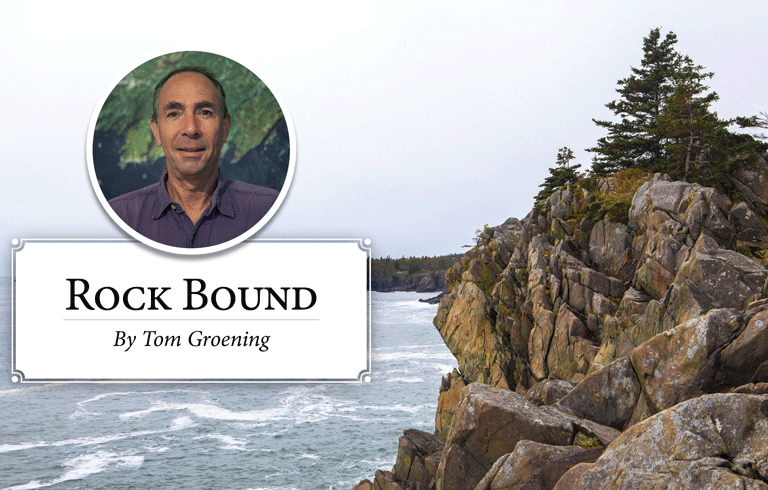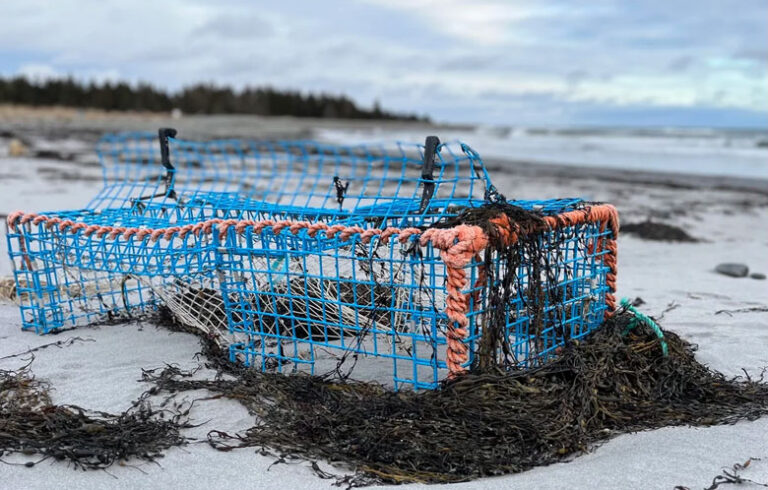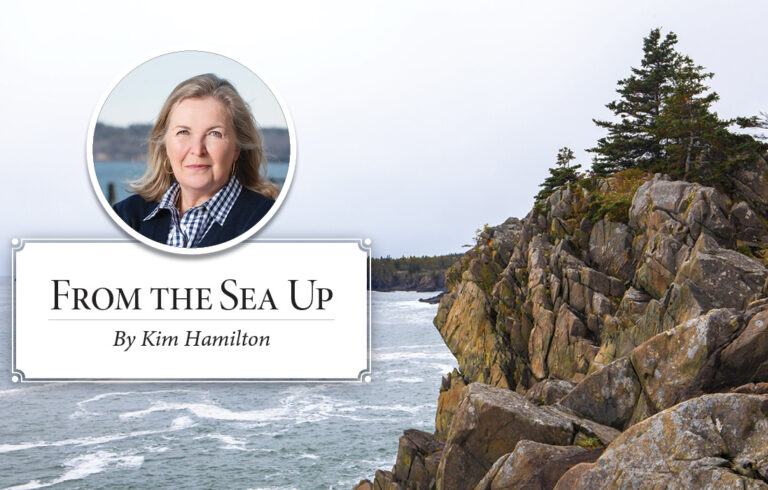Returning to my new home in Pennsylvania hill country from a two-week visit to my daughters and friends in Maine, I was pleasantly surprised to find in my mail the latest issue of The Working Waterfront with several articles that intersected with my history in Maine.
The review of the new book, Sideshots, by John Mann and illustrated by Earle Mitchell, forced a recall of my long friendships with both men as we attended Freeport schools together in the 1960s. John and I collaborated on several of my consulting projects for wealthy coastal landowners over the years—John providing me survey back-up to my engineering work.
John and Mitch are both great storytellers, and like me, remember Freeport when you still had to walk up two flights of steep wooden stairs to get to the L.L. Bean showroom. When one talks about “Maine—the way life should be,” those are the days I recall.
The other article that sparked a lot of memories was the Rock Bound column on the Maine Times. Back in 1969-1970 I dated the step-daughter of Ken Morrison, who was a feature writer for Maine Times. Ken and I sat up many a night at his kitchen table in Freeport discussing those social and environmental issues that the Maine Times was so good at bringing to light. It was brave work in those days and only a veteran newsman like John Cole and publisher Peter Cox seemed to have the fortitude at the time to challenge the status quo.
A tangential memory related to Maine Times is that Dodge Morgan became its publisher late in the newspaper’s life. Dodge Morgan, author of Voyage of American Promise, set 13 world records sailing his Ted Hood monohull solo and nonstop around the world in 150 days in 1985-86. I had eagerly followed the news accounts and was a big fan of his, although I had never met him until July 11, 1987, two years before his book was published.
On July 10 of that year, I left my winter home in Freeport to take my 30-foot sloop up to my summer island in Penobscot Bay. I stopped for the night in the southern cove at Damariscove Island, off Boothbay. Unusual for a mid-summer night, I was the only boat in the harbor and I set my anchor right in the middle of the small cove north of the stone pier.
Just before dark, a small two-masted schooner, the Eagle, entered the cove, sailed up my east side, around me to the north, and then anchored off to my west. I recognized the captain (solo again) as Dodge Morgan from pictures I had seen.
I was in a quandary because I had been in Damariscove Harbor many times at all stages of the tide and knew there was a ledge right under where Dodge’s schooner had anchored and that given the state of the tides, he was likely to ground out about 3 a.m. But who was I to tell Dodge Morgan where he should anchor? So I let it be and we jointly acknowledged each other with a brief wave as he set his anchor.
Sure enough, sometime in the middle of the night I heard a commotion over on Eagle. I got up, popped my head out of the cabin slide, and could see his mastheads leaning to the west. I called out to ask if he was OK and I got a gruff “yes” in reply.
I got in my dinghy and rowed over next to Dodge, who was perched on the port rail, waiting for the tide to float the Eagle again.
I started the conversation by asking him, “You’re Dodge Morgan, aren’t you?” He looked around furtively as if someone else might hear, then said, “Yes.”
I asked, “Didn’t you know that there was a ledge here?” Answer: “No, I don’t have a chart.”
I then asked, “Did you check the depth under your keel when you anchored?”
Answer: “No, I don’t have a depth finder.”
I then asked, “Didn’t you know there was an extra low tide tonight?”
Answer: “No, I don’t have a tide table.”
At that point I was about out of questions except for the logical one: “How does a man who can sail around the world in record time come to run aground in your own home waters of Maine?” but I didn’t ask it. Instead, Dodge broke the ice by offering, “I’ve run aground quite a few times on the Maine coast. It is not like sailing on the open ocean. So I just wait for the tide to float me off again.”
I had run aground a few times myself, so we then spent a half hour or so sharing stories of running aground on the coast of Maine. I came away with the feeling that although Dodge was willing to fit out American Promise with the best instrumentation that money could buy, he was a gambler at heart and just liked the challenge of trying to sail the Maine coast like the sailors did in the 1800s. I guess it was his gambler’s instinct that caused him to buy the Maine Times.
Bob Gerber grew up on Peaks Island and in Freeport. Now retired, he was a consulting environmental engineer and geologist, specializing in complex groundwater, riverine, and wave modeling. He spent his first 20 years of summer after college sailing the Maine coast. He and his wife built a summer house on a small island in Penobscot Bay which they shared for 20 years, then he moved his summer residence to Isle au Haut. He now owns homes in Cape Elizabeth and Eagles Mere, Penn.




